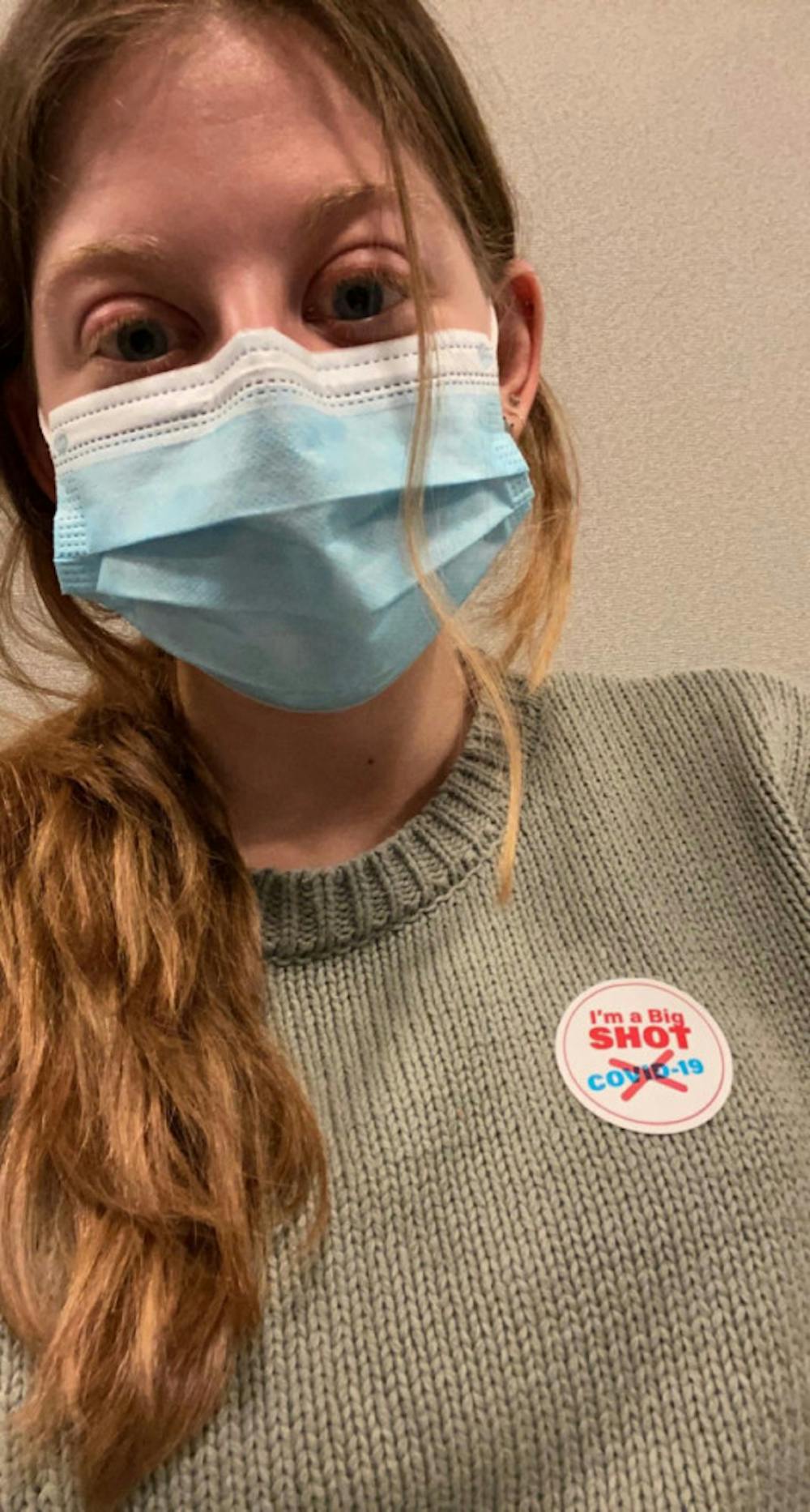By Alycia Gilb
Reviews Editor
When senior nursing major Dana Finkelstein lost her grandfather to Covid-19 in December, the gravity of the virus hit home. Working as a nursing assistant at Hackensack University Medical Center (HUMC), Finkelstein knew that getting the Covid-19 vaccine was the right choice for her.

Since June, Finkelstein has been working at HUMC with Covid-19 patients, putting her in close witness to the pandemic’s true effects.
“I take all the precautions at work, wearing PPE, [I change] into hospital scrubs, and [I clean] anything I [have] with me with bleach wipes, but I still worry about bringing something home to my family,” she said.
Finkelstein said that she was “so relieved” to receive the Covid-19 vaccine, as it would be another precaution to protect herself and her family, who she lives with at home.
While there are individuals who fear the side effects of the vaccine, Finkelstein said that she was not nervous about them. “I have received all my other vaccines including my yearly flu shot and have never had any problems,” she said.
When Finkelstein received the vaccine at the end of December in her place of work, she was kept in observation so that doctors could monitor her condition. During this time, she did not experience any problems. The night she received her vaccine, Finkelstein experienced some chills — but no fever — and her arm was sore for two days following the injection.
Unlike Finkelstein, Dylan Beyer, a senior health and exercise science major, wasn’t completely in favor of the vaccine before he decided to receive it.
“I was skeptical initially,” he said, “but the FDA has rigorous guidelines that must be met to ensure the safety of those who get the vaccine.” Beyer explained that he ended up getting the Covid-19 vaccine because he works as an EMT and he “wanted to be a part of eradicating the virus.”
Tim Albano, a sophomore engineering management major, shared that his initial reaction to the vaccine was awe for how quickly it was developed and tested.
Learning on the job, Finkelstein explained that the process of creating the vaccine “may have seemed fast, but that is because [the developers] had proper funds and participants which lots of researchers wait years for.”
Although Albano isn’t a health-related major, he was able to receive the vaccine because he volunteers for an EMS organization, which places him in phase 1A of New Jersey’s vaccination plan. While Albano feels that it’s reasonable to be uneasy about the possibility of long-term side effects, he believes that the benefits of the vaccine outweigh the risks.
“The research and testing available to us now shows that the good we know the vaccine will do far outweighs the unknowns of what the vaccine might do,” he said. Albano, like Finkelstein, is comforted by the idea that he will be less likely to bring the virus home to his loved ones while working with his EMS organization.
In times when in-person communication isn’t available, Finkelstein has been using her social media platforms and medical experience to inform her peers about the vaccine. On her YouTube channel, she candidly shares days in the life of a Covid-19 nurse.
http://www.youtube.com/watch?v=dNpOUap9q_w
“As someone who is almost finished with a degree in the healthcare field and working in a hospital, I feel I am someone my followers can trust,” she said. Finkelstein has done this by posting facts and answering her followers’ questions as well. “I have seen so much false information and fear mongering; I wanted to share my experience to make it seem less scary,” she said.

Another motivation behind Finklestein’s posts was to destigmatize the vaccine by walking her followers through her vaccination process.
Finkelstein understands that there may be hesitation around receiving the vaccine, but she wants people to consider the risks of contracting Covid-19, as well. While the vaccine holds the prospect of possible life-long symptoms, so does Covid-19.
“The known long-term effects of Covid are very severe and can completely alter quality of life,” she said. “I want people to know that [the vaccine] is safe and they should be much more worried about Covid-19 than the vaccine.”







